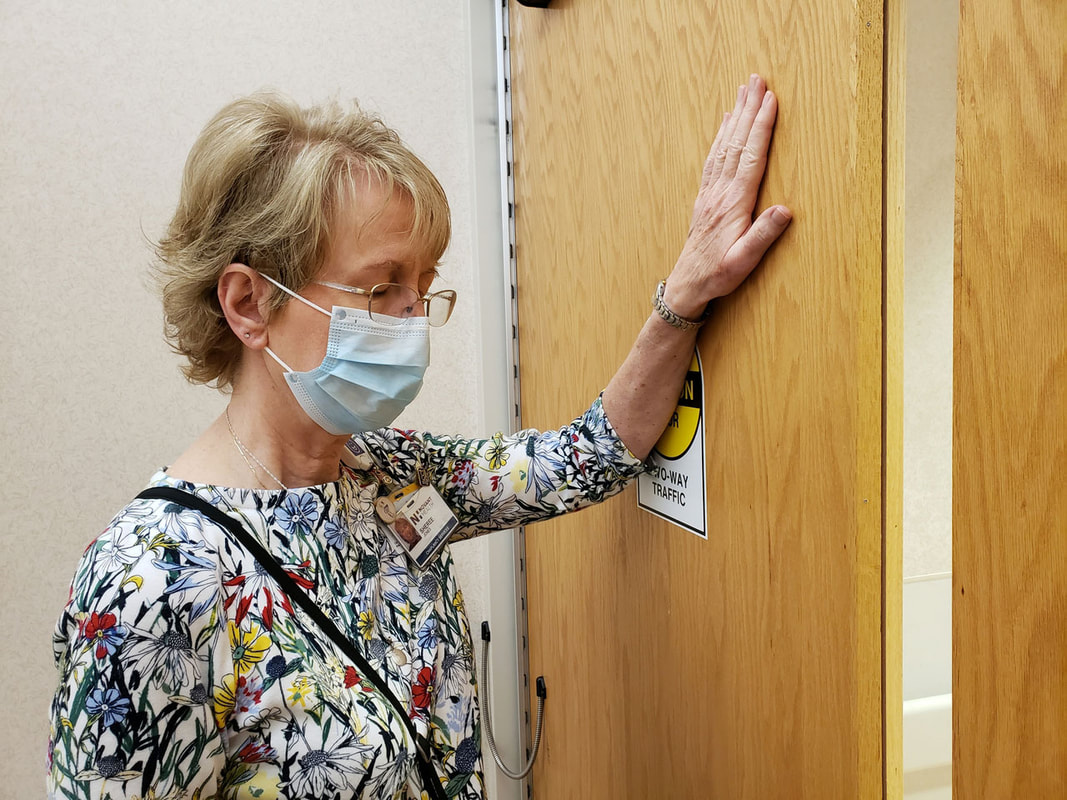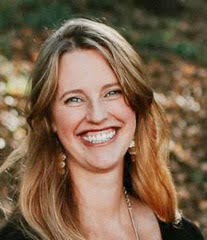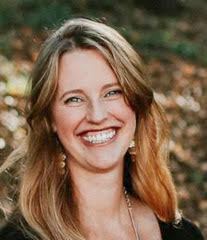|
Losing one’s job is a very personal experience. It taps into all kinds of feelings. For an individual there may be concern about financial security and what next steps might be. Depending on the circumstances of the stoppage of work there may be shame, or illness, or some other stressful circumstance affecting their feelings about it. Dismissal from work ranks in the top ten most stressful life events a person can experience which can potentially have long term health impacts. On the other hand, there may also be hope and anticipation, a sense of freedom or a fresh start. Walking through work transitions with a directee does not seem like something outside the realm of possibility for most directors. In fact, most directors probably feel very equipped to support someone in that season. But what if that work loss has ripple effects throughout the community? How do our questions and help differ in that context? Sometimes the loss of one person’s job affects many throughout a community. If that person was a primary provider for their household, or the leader of a community and they are now unavailable or moving away, everyone experiences an upending to some degree. Or perhaps loss of jobs impacts an entire community at once, as when a town has grown up around a particular industry or business, or when experiencing pandemic or recession. There are a variety of reasons that we as directors may find ourselves working with people who are all from the same community. In these cases, we may begin to hear the story of these events told through a variety of lenses. When we are attending to individuals who share many aspects of their lives we can begin to look for common themes between them, especially when something happens that affects the entire community. Identifying these patterns can help us connect people with appropriate services or give language that can aid in communication with local religious or community leaders who may be meeting with the same groups. Spiritual directors can be valuable voices when communities are discerning next steps together. If you do find yourself meeting with multiple individuals who are all being touched by changing jobs or economies, group direction is also an option. It may help bring together people who are able to empathize with and support one another in unique and helpful ways. For the individual who’s work or vocation is intertwined into their community life, losing a job or transitioning into something different may be more emotionally loaded. How do they feel about the impact of their changing circumstances on the community? How are they reflecting their experience to their community? Are they able to share and be supported? Are they hiding what’s really going on in their heart? These additional concerns make someone’s experience more than walking through a transition because of the potential depth and complexity of relationships between affected parties. If you do find yourself meeting with multiple individuals who are all being touched by changing jobs or economies, group direction is also an option. Starting a group may help bring together people who are able to empathize with and support one another in unique and helpful ways. Group direction may also help by providing a variety of perspectives and can give everyone a sense of togetherness and community as they discern how to handle the challenges facing them. Whether we are meeting with one person or a group, acknowledging and caring for the complex needs that are sometimes hiding below the surface of circumstances, is the ongoing challenge and privilege of being a spiritual director.
0 Comments
This post, written by Erin Jantz, originally was published on March 20, 2015, on the ICTG blog. Read Spiritual Direction in the Face of Trauma: Part One here. A common theme in helping professions is hospitality. We desire to create and hold space for those we are helping. This is particularly true for a spiritual director who is companioning a survivor of trauma. As we hold space for survivors we must be able to put aside, more than normal, our own egos and allow each person’s experience to be unique to them. We must not take their power, but rather empower them towards health. We become a container, an external boundary, within which people can fall apart knowing they will not be shamed, but rather offered strength and courage. We desire to restore functioning, to encourage non-negative thinking, and to help our “directees” form a coherent narrative that integrates their experience – mind, body, and spirit. A spiritual director’s role in the ongoing process of healing focuses on how a survivor’s synthesis of thoughts and feelings are affecting their experience of holiness. In discerning what practices may be the most helpful for an individual, a director should consider intricacies of the person’s faith. Directors should ask the following questions:
For further help in assessing a directee’s individual spirituality and its role in their healing process, Donald Meichenbaum has created an excellent comprehensive resource for assessing a psychotherapy client’s spiritual functioning that is applicable to spiritual direction. As directors dealing with a human being, we would be remiss to ignore the role of the body in experiencing holiness. Incorporating the body into prayer may include practices of mindfulness, traditional postures such as kneeling, or nontraditional postures that help a survivor feel safe such as standing with eyes open. Philip Helsel, friend of ICTG, has written out a beautiful ritual that incorporates blessing the body and intentionally including it in prayer in postures of safety. For some, walking or pacing helps to relax tension in the body enough to allow prayer to happen. For others, praying using the traditional imaginative exercises of St. Ignatius can be helpful in engaging the senses. The Jewish traditions of “sitting Shiva” and Tisha b’Av are rich with tangible rituals and practices that are specifically designed to allow space for grief and healing, both for those who have been hurt and those who are grieving the loss with them. There is so much room for growth in our understanding of how trauma affects the human spirit. Scattered across the traditions are powerful models of both lament and courage as well as celebrations of both vulnerability and strength. We must gather these resources and stay in dialogue with our colleagues in the fields of mental health, medicine, and theology. As we do, we will continue to see new experiences of the holy integrated, and resultantly, strong, intact people who emerge to tell their stories of survival.
In the current pandemic crisis, we are seeing an overwhelm of the health care system that is unlike anything we have seen in our lifetimes. The restrictions around hospitals limiting visitors (for everyone’s safety) mean that often people will be suffering, even dying, in some degree of isolation. For some there may be a nurse or chaplain that stays with them. But many will not be attended to by their family. And in kind, the family will be home without their loved one. Feelings of helplessness, anger, and overwhelming sadness will accompany this difficult experience.

IMAGE: NOVANT HEALTH
It is likely that most of us will know someone either directly or through someone close, who dies of this disease. That means we will also be coming into contact with directees who have lost loved ones in this cold and detached way. In older congregations we may see dramatic drops in members and be grieving these lonely deaths as a group. This experience of losing so many people in a way that is so outside the norm may heighten the experience of bereavement. The strong emotions that accompany grief, combined with a sense of helplessness can quickly reach the levels that we define as being traumatic. How can we help people to process through their experience in a way that helps them avoid becoming stuck? How can we help people to find comfort in the Presence of God in such trying times? How do we honor traditions that normally would comfort people with “last rites” when we cannot be physically present with the dying? Responding well to the very real and tangible losses of life around us will be part of the long term recovery process. Being intentional in our response will also help build resiliency and protect the mental health of our directees in the aftermath of this global crisis.
Different helping professions will all need to navigate their own response and how they provide care. For spiritual directors, this journey will necessitate facing theodicy, or the “why do bad things happen” question, with our directees. We will need to create space for, and perhaps provide instruction about, lament. We must allow space for tears, anger, and the heavy silence that falls when words fail. Embodied work will need higher priority.
For those of us who fill a dual role as minister/shepherd/pastor, or who consider ourselves part of an institution or congregation, attending to the communal experience will also require tender attentiveness. There is so much loss in this season for everyone. Each of us has and will experience different affects on our emotional, physical, spiritual, fiscal, and relational health. Senses of “normal” and security have been and are being threatened. There is so much grief work to be done. Finding the grief connected to losing a loved one and holding it in context of all the other losses swirling around will call for patient and precise care.
If you have not already begun to meet with directees who have lost loved ones, consider that it is likely that you will in the future. Begin to prepare yourself now, both in heart and in training, to walk alongside a level of unique grief, unknown to most of us. This is a new chapter. We are preparing the way for what spiritual direction will look like for decades to come. Discuss this with colleagues. Bring it to supervision. Perhaps the resurgence of interest in being trained as a spiritual director that we have seen over the last decade or so, was for just such a time as this.
|
�
SPIRITUAL DIRECTION BLOG
From 2012-2020, this blog space explored expanding understanding and best practices for holistic health in the context of spiritual direction.
This website serves as a historical mark of work the Institute conducted prior to 2022. This website is no longer updated. Archives
September 2020
Categories
All
|




 RSS Feed
RSS Feed
